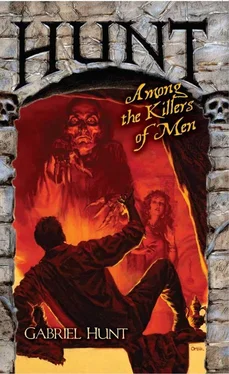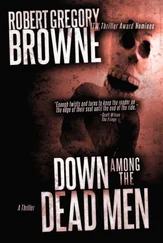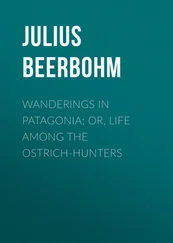“Not like him. No simple employee could ever gain that much of Cheung’s confidence. No woman, either.” She pulled her knees to her chin in an aerobic stretch.
“Who is he?”
“Longwei Sze Xie. His given name means ‘dragon greatness.’ He is commonly called ‘Ivory.’ No one knows why.”
“How did you leave Cheung’s…employ?”
“Cheung and Ivory became convinced that I would serve as an adequate sacrifice for a bad business decision.”
“Michelle Quantrill was in the same kind of situation,” said Gabriel. “She was falsely implicated, too. When Cheung killed her sister, he left Michelle to take the heat. I got her out of jail and told her to stay put, but she assumed her sister’s identity to come here and…” Gabriel trailed off. “Well you know the rest. It didn’t work out.”
“And why did you come?”
“To talk her out of what she was trying to do.”
“Why?”
“Because I knew something bad would happen to her, like what did happen to her. I think she knew it, too. I just don’t think she cared.”
“She came as a ghost, then,” Qi said contemplatively. “She was already dead. I knew we were linked when I first saw her. I just knew. “
They sat regarding each other for a silent moment. The connections between people are not reducible to hard statistics, Gabriel knew. Sometimes attraction was a thing of looks and moments, half-drawn breaths and secret approval. Intuitive, as when things denied logic yet felt correct. He resisted the urge to lean forward, to taste the spice again.
“I betrayed no one,” Qi said, “regardless of what they claimed. And I survived their attempts to destroy me. Twice now I have tried to take him, and twice I have failed. Once in the Pearl Tower. Once at the Zongchang casino. I failed the second time because your friend was in my line of fire—on a similar mission, though I did not know it.”
“And you think you owe yourself another stab?” Gabriel could not quite bring himself to say, Let it go; get past it. Qi would just ignore him if he did. “He’s not just going to forget your face. He’ll see you coming.”
“I want nothing less,” she said quietly.
“Then you’ll die, same as Michelle did.”
“As long as he dies first.”
Gabriel had encountered fatalism before, and zealotry, and devotion to a cause; but rarely held with this combination of unquestioning conviction and yet so little emotion.
“I know when the children will next be sold at the Night Market,” she said. “Cheung will be there. From high places, the rich bid on the poor. I can kill him there. But I cannot do it alone. Think on this for a night. Do not answer now. I am going to sleep.”
With a complete absence of shame or self-consciousness, Qi rose from the cauldron naked, stepped over its iron side and walked away, leaving a trail of wetness on the ground. Her body was lean and hard, muscular, pantherish. Before she’d turned, Gabriel had seen there was another ungainly X of scar tissue beneath her left breast, where some other possessive malefactor had tried to brand her, or take something away from her. Gabriel watched her until she was out of sight, engulfed by the night.
After a moment sitting alone in the cooling water, Gabriel rose dripping and got his gear, because there was work to do before sunrise.
It took the better part of two hours for Gabriel to clean, hack and chip away the main debris around the base of the giant bronze statue presumed to be warlord Kangxi Shih-k’ai, in the second shrine room. He had to work by fire and lantern-light, with brushes and chisels, the way the old-school guys had before the intrusion of modern conveniences like floodlights. Had workmen built this cumbersome thing inside the shrine? Had they built it somewhere else and hauled it here, and if so…how? It was impossible to calculate the sheer tonnage of the idol, but it would take an earthmover to budge it.
It had to be constructed of sections, Gabriel concluded. Components. Which meant seams. He had thought of this angle of attack while puzzling over the cunningly engineered box back at Tuan’s. The base of the idol was a crude rectangular metal slab, not nearly as detailed as the rest of the statue. It was aesthetically offensive. Why? Nothing about the composition of an idol like this was an accident.
Here, on one face of the pedestal, were ideograms. Spackled with the “alpha decay” common to archeological bronze, the writing was invisible until Gabriel was able to sculpt out the calcareous accretions. Perhaps here were instructions, clues, leads; unfortunately, the language variant was one Gabriel did not recognize. And on the other faces of the pedestal—nothing. No marks at all.
The dry environment of the room and mountainside had helped retard corrosion, but nothing could stop the process. Using an improvised potter’s cut-off tool he fabricated from a nail and a paintbrush handle, Gabriel was able to scrape the patina of ages from a small seam about two inches down from the top of the base. Following it, he was able to describe a small, rough rectangle about a foot high. It did not appear to want to travel anywhere laterally, so Gabriel struck it with a hammer. The metal made a loud clang like a muffled bell, but Qi did not come running.
Decay and flakes of oxidized metal sifted floorward. Gabriel hit it again.
The rectangle had sunk into the pedestal about an eighth of an inch. Maybe the pedestal was hollow. Rough acoustics indicated it might be.
Bang , again. And again.
Whatever this little component did, it had not done it for nearly a century, and it resisted easy cooperation. But every time Gabriel struck it, it retreated into the base a bit farther until it was sunk nearly half a foot…
…revealing a small inset on the right-hand side, like the dado joint on a drawer. Gabriel could just curl his fingers around it. It was meant to be pulled out, like a lever.
Using all of his strength and most of his weight, Gabriel was able to budge it about half an inch. He then lost another half hour devising a rudimentary block-and-tackle system to loop around the exposed end and leverage it.
He had to have more than one warm body on this line. He took a break to wash down some caffeine pills he found in one of Qi’s bags with a draught of strong (though cold) coffee, and went to seek his mysterious partner.
He found her asleep on a pallet on the third level of the pagoda, still naked though tightly bound up inside the punctured sheet of tin, which she’d wrapped around her torso and secured with wet leather thongs that constricted as they dried. It was like a penitent’s scourging corset and looked intensely painful, but Qi seemed sound asleep.
Then Gabriel caught the flickering residual tang in the air and realized that among the other provisions Tuan had supplied Qi, besides food, weapons and equipment, there had been a dose of opium. The long pipe was still at her side like a snoozing demon lover.
Chapter 9
The workings of the pedestal proved more frustrating to operate than a public telephone in Beijing.
The hidden lever freed itself by degrees, measured in Gabriel’s sweat. At full cock it released a panel on the far side of the iron base. The panel was heavier than the door in a Swiss bank vault and meant to be slid horizontally backward into a recess in the wall that was clotted with decades—perhaps more than a century—of mulch, roots and earth. Gabriel spent the better part of an hour scraping dirt before he realized the sheer weight of the door would prevent him from moving it; it wasn’t as though it was on ball bearings or a hydraulic arm or something.
He hit upon using Qi’s motorcycle as a conscripted assistant, since Qi was definitively out of the action.
Читать дальше












